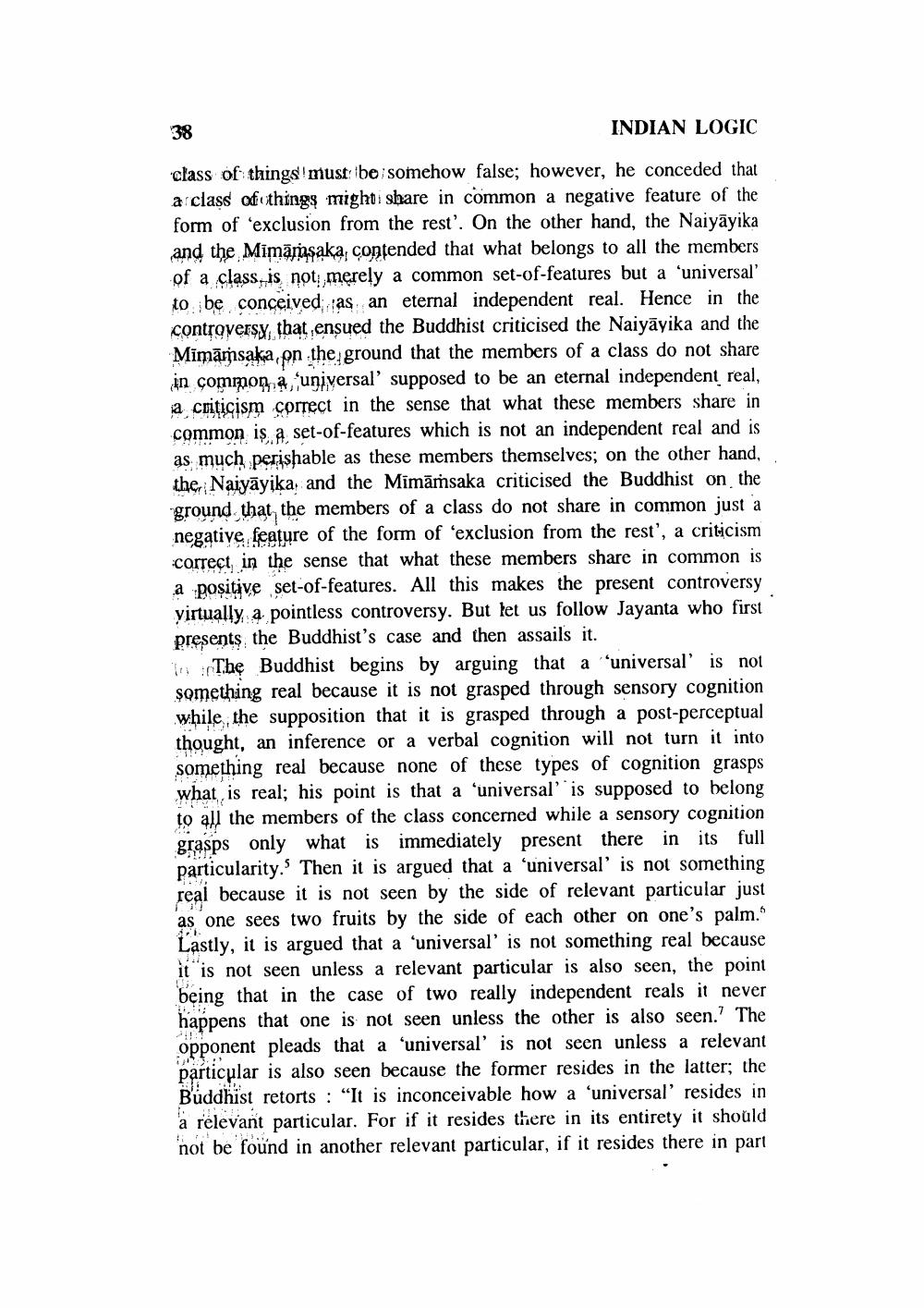________________
38
INDIAN LOGIC
class of things must be somehow false; however, he conceded that a class of things might share in common a negative feature of the form of 'exclusion from the rest'. On the other hand, the Naiyāyika and the Mimāmsaka, contended that what belongs to all the members of a class, is not merely a common set-of-features but a ‘universal’ to be conceived as an eternal independent real. Hence in the controversy, that ensued the Buddhist criticised the Naiyāyika and the Mīmāṁsaka, on the ground that the members of a class do not share in common a, universal supposed to be an eternal independent real, a criticism correct in the sense that what these members share in common is a set-of-features which is not an independent real and is as much perishable as these members themselves; on the other hand, ther Naiyāyika, and the Mimāṁsaka criticised the Buddhist on the ground that the members of a class do not share in common just a negative feature of the form of 'exclusion from the rest', a criticism correct, in the sense that what these members share in common is a positive set-of-features. All this makes the present controversy yirtually a pointless controversy. But let us follow Jayanta who first presents the Buddhist's case and then assails it. In The Buddhist begins by arguing that a universal' is not something real because it is not grasped through sensory cognition while, the supposition that it is grasped through a post-perceptual thought, an inference or a verbal cognition will not turn it into something real because none of these types of cognition grasps what is real; his point is that a universal' is supposed to belong to all the members of the class concerned while a sensory cognition grasps only what is immediately present there in its full particularity. Then it is argued that a universal' is not something real because it is not seen by the side of relevant particular just as one sees two fruits by the side of each other on one's palm." Lastly, it is argued that a ‘universal' is not something real because it is not seen unless a relevant particular is also seen, the point being that in the case of two really independent reals it never happens that one is not seen unless the other is also seen. The opponent pleads that a universal' is not seen unless a relevant particular is also seen because the former resides in the latter; the Buddhist retorts : “It is inconceivable how a 'universal' resides in a relevant particular. For if it resides there in its entirety it should not be found in another relevant particular, if it resides there in part




